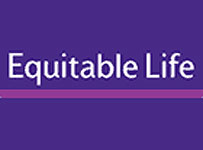Thousands of Equitable Life Collapse Victims May Not Receive Payouts
There is a sad news in the life insurance industry. More than 200,000 people who suffered financial losses due to the collapse of the Equitable Life Assurance Society may not receive any compensation.

Shortcomings in the governmental reimbursement scheme, administered by outsourcing firm Atos, are to blame, says Westminster spending watchdog Public Accounts Committee (PAC).
It seems the Coalition Government’s promise to compensate as many as 1.5 million affective policyholders is not being fulfilled.
The Collapse
Founded in 1762, The Equitable Life Assurance Society was the oldest mutual insurer in the world. The UK company pioneered the concept of age-based premiums determined by mortality rate. At its peak, Equitable boasted 1.5 million policyholders and managed £26 billion worth of funds.
Unfortunately, the business failed to make provisions for adverse changes in the market when guaranteeing investors fixed returns. This led to the accumulation of large, unhedged liabilities.
Attempts to find a buyer failed, and a July 2000 ruling by the House of Lords forced Equitable Life to close itself to new business as of December 2000 and reduce existing member payouts. A Penrose report published four years later revealed that the company was underfunded due to making overly generous payouts.
Compare 200 Life Insurance Plans – Get Our Cheapest Quote Online Today
The European Parliament issued a report in 2007 following its 15-month investigation of the company, concluding that regulators focused on solvency margins while failing to consider increasing risk represented by accrued terminal bonuses.
In its Spending Review issued in October 2014, the coalition government announced a £1.5 billion compensation scheme for affected policyholders.
Dependents of deceased policyholders were included in the scheme, and there was to be no means-testing. However, compensation was to be limited to the absolute loss suffered by policyholders, not the returns produced by similar companies.
The Problem
The compensation scheme will end in March 2015, but the Treasury now says it may be unable to locate approximately 20 percent of policyholders by this time. The PAC recently accused the Treasury of selecting an “arbitrary” closing date for the scheme.
PAC also criticized services provided by Atos, noting that the outsourcing firm is not being compensated based on its performance. Mistakes have been discovered for almost half of the work assessments made by Atos to date.
According to the PAC report, administration costs for the scheme are already £4m over budget. The report noted that Atos is not incented to act speedily and efficiently. Claimants say they have received unnecessary and duplicate correspondence that is both wasteful and frustrating.
Rather than planning scheme administration properly, the Treasury arbitrarily established June 2011 as the deadline for the first payments, according to the report.
Lack of proper planning also contributed to “unacceptable” payment delays, claims PAC
By March 2012, only £168 million had been paid out, much less than the £500 million in payouts expected by this milestone.
By the end of March 2013, payouts to 407,000 policyholders totalled approximately £577 million, and £370 million was due to be paid to 664,2000 more policyholders by the March 2014 scheme ending date.
According to PAC Chairman Margaret Hodge, it is “unacceptable” that so many people have yet to receive the compensation to which they are entitled. More than one decade after Equitable Life collapsed, the Treasury still has not gotten the payment scheme under control, said the PAC Chairman.
A source at the Treasury believes otherwise, claiming that the government is working diligently to maximize the number of individuals who will receive payments.
Steve Case is a seasoned professional in the UK financial services and insurance industry, with over twenty years of experience. At Insurance Hero, Steve is known for his ability to simplify complex insurance topics, making them accessible to a broad audience. His focus on clear, practical advice and customer service excellence has established him as a respected leader in the field.


